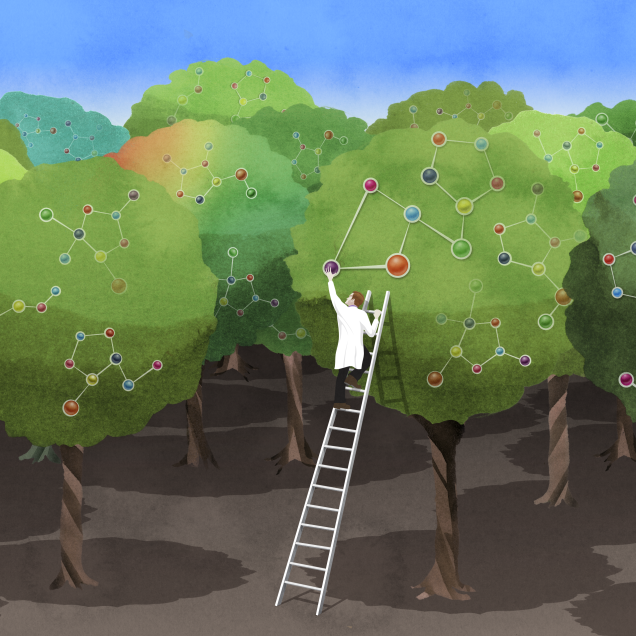An energetic pursuit
Metabolism research at Whitehead Institute

When we take in energy as food or drink, a complex suite of chemical reactions allow us to turn it into usable fuel. The sum of these reactions, within each cell and throughout the body, makes up our metabolism. At Whitehead Institute, researchers are delving into the mechanisms behind metabolism from a variety of angles: How can we efficiently model diseases such as diabetes that affect metabolism? How are medicines metabolized, and how can we harness our knowledge of metabolic pathways to help drugs reach their targets? How are animals able to reduce their metabolic rates when they enter states of hibernation or torpor? What molecules can’t plant metabolism make? Browse this collection of multimedia stories to learn about all these projects and more.



